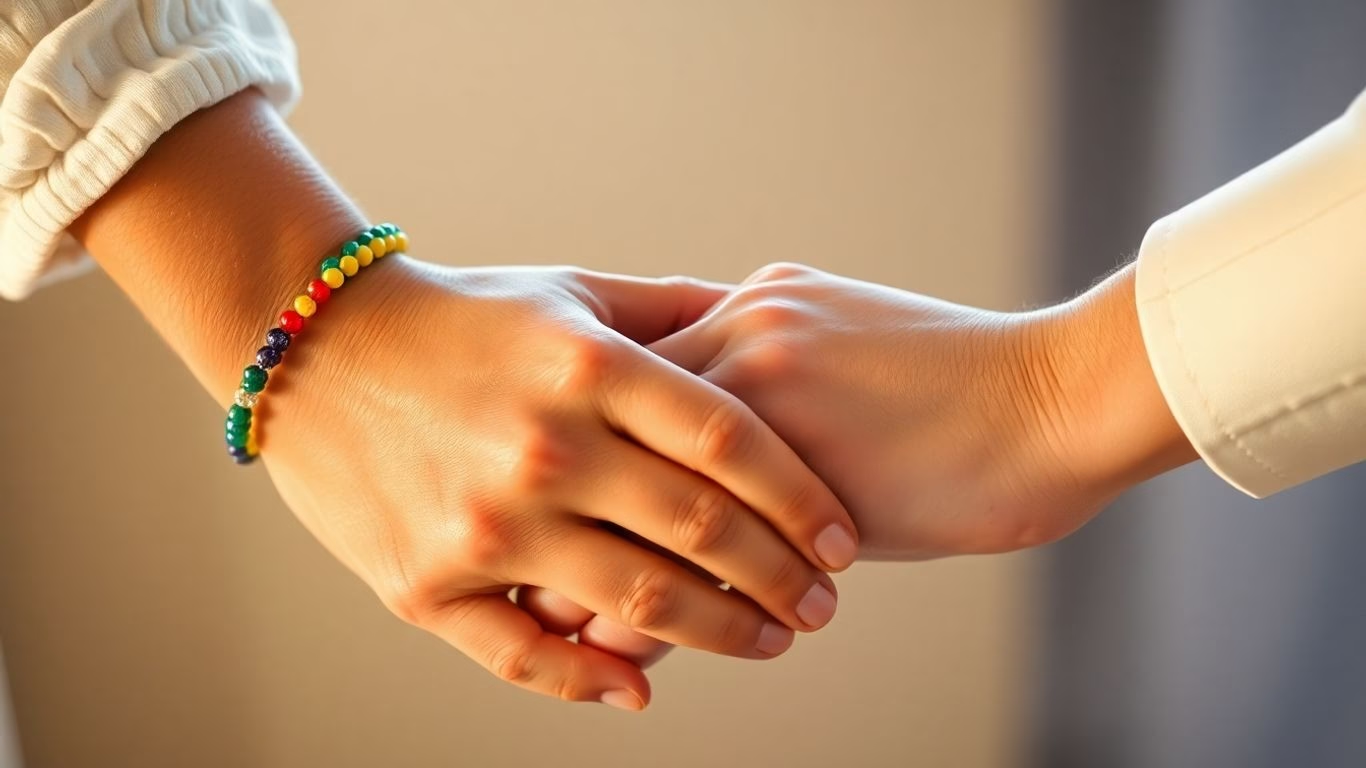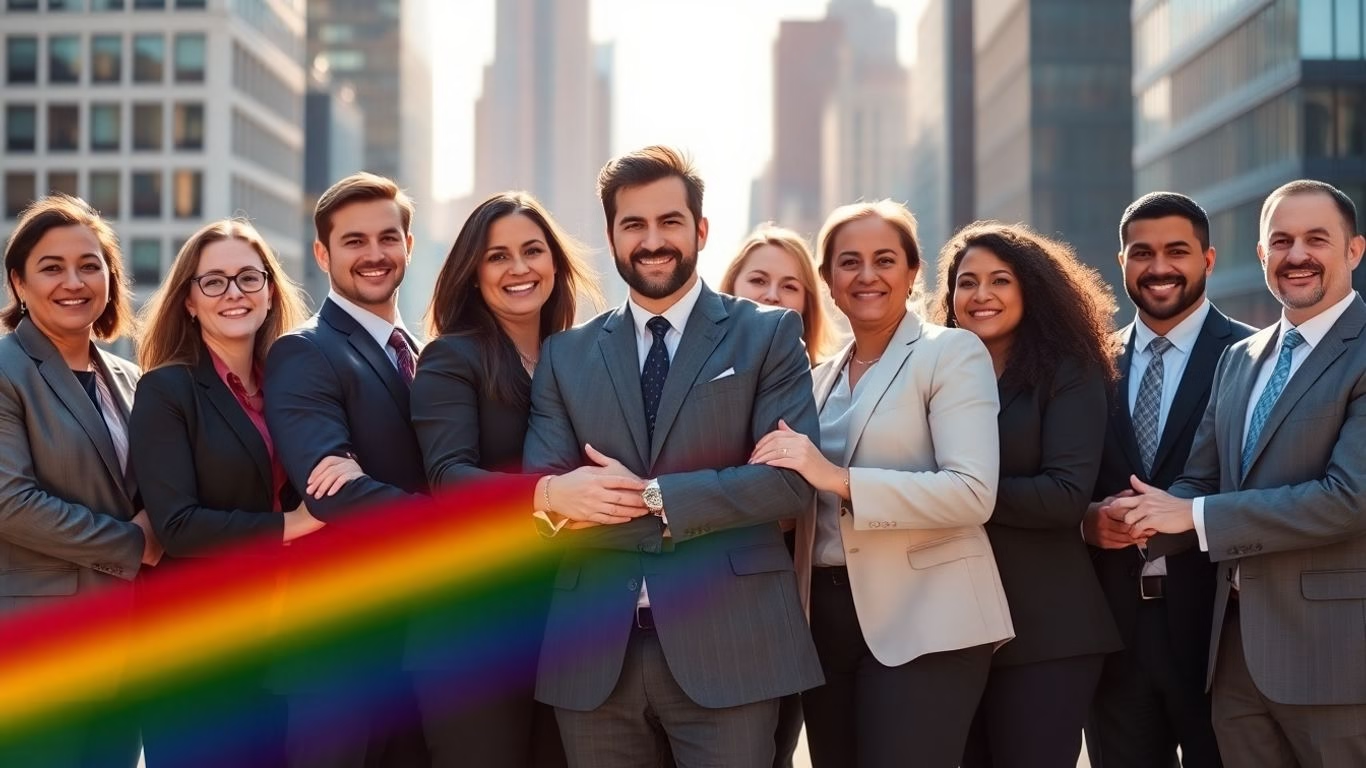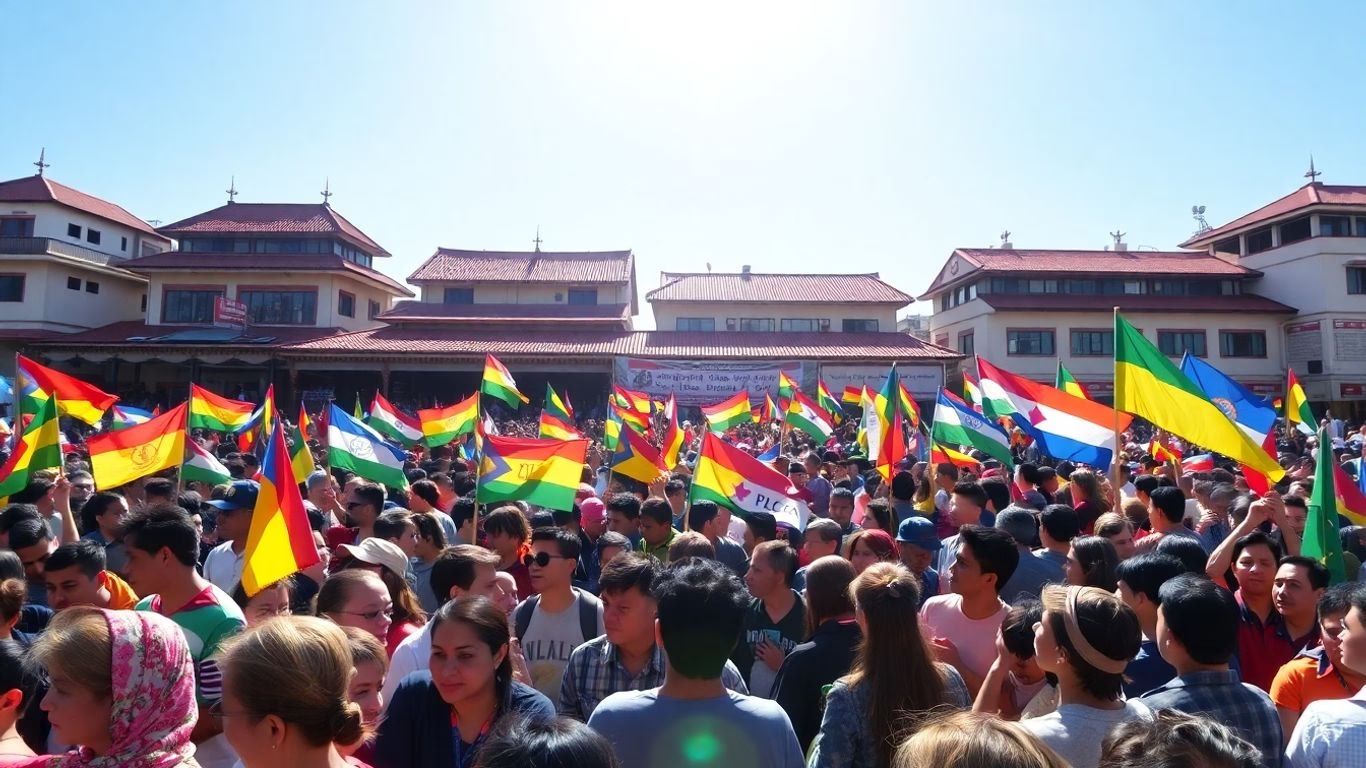It’s no secret that being part of the LGBTQ+ community can come with its own set of challenges. But when you add discrimination into the mix, the effects on mental health can be pretty significant. This article looks at how facing unfair treatment impacts the well-being of LGBTQ+ individuals, exploring the different ways this happens and what can be done about it. Understanding The Mental Health Impact of Discrimination on LGBTQ+ Individuals is key to creating a more supportive environment for everyone.
Key Takeaways
- Discrimination, whether it’s based on sexual orientation, gender identity, race, or other factors, really takes a toll on the mental health of LGBTQ+ people. It’s not just one thing, but a whole lot of experiences that add up.
- People who are part of multiple minority groups, like LGBTQ+ people of color, often face even more discrimination, which can lead to worse mental health outcomes. It’s like dealing with prejudice from different sides.
- The stress from being in a marginalized group, known as minority stress, is a big reason why LGBTQ+ individuals might experience more anxiety, depression, and other mental health issues.
- Even within healthcare settings, LGBTQ+ individuals can face mistreatment or barriers to getting help, especially transgender people of color. This makes it harder for them to get the support they need.
- Societal attitudes, legal debates, and the fear of rejection can make LGBTQ+ people feel they need to hide who they are, which also negatively affects their mental well-being.
Understanding The Mental Health Impact of Discrimination on LGBTQ+ Individuals
It’s no secret that being part of the LGBTQ+ community can come with its own set of challenges, and unfortunately, discrimination is a big one. This isn’t just about the occasional rude comment; it’s a more widespread issue that really chips away at people’s well-being. The constant feeling of being judged or treated unfairly takes a serious toll on mental health.
The Pervasive Nature of Discrimination
Discrimination against LGBTQ+ individuals isn’t a rare occurrence. It shows up in various forms, from subtle microaggressions to outright exclusion and mistreatment. This can happen in workplaces, social settings, and even within families. For many, it’s a daily reality they have to navigate. This persistent exposure to negativity can create a constant state of alert, making it hard to relax and feel safe.
Disparities in Mental Well-being
When we look at mental health statistics, there’s a clear difference between LGBTQ+ individuals and their cisgender, heterosexual peers. Studies consistently show higher rates of anxiety, depression, and other mental health concerns within the LGBTQ+ community. This isn’t because being LGBTQ+ is inherently linked to poor mental health, but rather because of the external pressures and discrimination faced. For instance, LGBTQI+ adults are more likely than non-LGBTQI+ adults to report that discrimination significantly affected their mental well-being.
| Aspect of Well-being | LGBTQI+ Individuals Affected (%) | Non-LGBTQI+ Individuals Affected (%) |
|---|---|---|
| Mental Well-being | 58 | 38 |
| Spiritual Well-being | 43 | 25 |
| Financial Well-being | 35 | 28 |
| Physical Well-being | 35 | 22 |
The Role of Minority Stress
Experts talk about something called “minority stress.” Basically, it’s the extra mental strain that comes from being part of a group that’s often marginalized or looked down upon. This stress isn’t just about the big, obvious acts of discrimination; it’s also about the anticipation of prejudice and the need to constantly be on guard. This can be especially tough for those who hold multiple minority identities, like being LGBTQ+ and a person of color. The cumulative effect of these stressors can be quite heavy, impacting everything from mood to self-esteem. It’s a complex issue that requires a nuanced approach to understand and address, especially when considering how people seek mental health care.
Intersectionality Of Discrimination And Mental Health
It’s easy to think about discrimination as a single issue, like just being targeted because you’re gay or trans. But for many LGBTQ+ folks, it’s way more complicated than that. Their experiences are shaped by a whole bunch of things all at once, and that really messes with their mental health.
Multiple Minority Statuses
Think about it: someone might be Black and gay, or Latina and trans. These aren’t separate boxes; they overlap. Each identity can bring its own set of challenges and prejudices. So, a Black trans woman might face racism, transphobia, and homophobia, and these aren’t just individual slights. They can be woven into the very fabric of society, affecting everything from job prospects to how safe they feel walking down the street.
Experiences of LGBTQ+ People of Color
This is where things get really tough. LGBTQ+ people of color often deal with discrimination from multiple directions. They might experience racism within LGBTQ+ spaces, and homophobia or transphobia within their racial or ethnic communities. It’s a constant balancing act, trying to find belonging without facing prejudice. This can lead to a lot of isolation and stress.
Gender and Sexual Orientation Discrimination
Sometimes, the discrimination is specifically about someone’s gender identity or sexual orientation. For example, a lesbian might face different kinds of prejudice than a bisexual man. And a transgender person might experience discrimination that’s tied to their gender identity, which is different from discrimination based on their sexual orientation. These distinct forms of bias can pile up, each leaving its own mark on a person’s mental well-being.
Specific Impacts On Mental Well-being
It’s no secret that facing discrimination takes a serious toll. For LGBTQ+ individuals, this often translates into a higher likelihood of dealing with mental health challenges. It’s not just about feeling a bit down; we’re talking about significant impacts on how people feel day-to-day.
Increased Anxiety and Depression
Constant worry about how others will react, or the actual experience of being treated unfairly, can really wear a person down. This persistent stress is a major contributor to anxiety disorders. It’s like always being on edge, waiting for the next negative encounter. This can also lead to feelings of hopelessness and sadness, which are hallmarks of depression. Studies show that LGBTQ+ folks who report experiencing discrimination are more likely to also report moderate to significant impacts on their mental well-being.
Internalized Homophobia and Transphobia
This is a tough one. When you’re constantly bombarded with negative messages about who you are, it’s easy to start believing those messages yourself. This is called internalized homophobia or transphobia. It means that even when external discrimination lessens, a person might still struggle with self-acceptance and self-worth. This internal battle can be incredibly damaging, leading to self-doubt, shame, and a deep sense of isolation.
Impacts on Spiritual and Financial Well-being
Discrimination doesn’t just stop at mental health. It can ripple outwards, affecting other parts of life too. Many LGBTQ+ individuals report that discrimination has a noticeable impact on their spiritual well-being. This could mean feeling disconnected from a higher power, their community, or their sense of purpose. Similarly, financial well-being can suffer. Job discrimination, wage gaps, or difficulty accessing resources can create real financial strain, adding another layer of stress to an already challenging situation.
The cumulative effect of experiencing prejudice, whether it’s overt acts or subtle microaggressions, can create a pervasive sense of unease and insecurity. This isn’t just about isolated incidents; it’s about the ongoing burden of navigating a world that may not be accepting.
Here’s a quick look at how discrimination impacts different areas:
- Mental Well-being: Often the most significantly affected area.
- Spiritual Well-being: Can lead to feelings of disconnection.
- Financial Well-being: May result from job discrimination or unequal opportunities.
It’s clear that discrimination creates a complex web of challenges that go far beyond just a bad mood. It affects the core of a person’s sense of self and their ability to thrive.
Discrimination Within Healthcare Settings
It’s a tough pill to swallow, but sometimes the places we go to get better can actually make us feel worse. For LGBTQ+ folks, heading to a doctor’s office or a clinic can bring up a whole lot of anxiety. This isn’t just about feeling a bit awkward; it’s about real experiences of mistreatment and disrespect that can have serious health consequences.
Mistreatment by Mental Health Professionals
Even within mental health services, where you’d hope for understanding, LGBTQ+ individuals can face judgment. Therapists or counselors might not be trained on specific LGBTQ+ issues, leading to misunderstandings or even harmful advice. Some might hold biases, consciously or not, which can make a person feel invalidated or ashamed. This can make it really hard to open up and get the help you need.
Barriers to Accessing Care
Discrimination isn’t just about rude comments. It can create actual roadblocks to getting care. Think about it: if you’ve heard stories or experienced yourself that a certain clinic or doctor isn’t welcoming, you’re going to think twice before going there, even if you’re really sick. This is especially true when it comes to preventive care. People might put off important screenings because they’re worried about how they’ll be treated.
Here’s a look at how often LGBTQ+ people have put off care due to disrespect:
| Group | Delayed/Avoided Needed Care (%) | Delayed/Avoided Preventive Screenings (%) |
|---|---|---|
| All LGBTQ+ Respondents | 23 | 21 |
| Non-LGBTQ+ Respondents | 7 | 7 |
| Transgender Respondents | Higher rates | Higher rates |
| LGBTQ+ People of Color | Higher rates | Higher rates |
| Transgender People of Color | Highest rates | Highest rates |
Disproportionate Impact on Transgender People of Color
When you add race and gender identity into the mix, the challenges can become even more intense. Transgender people of color, for example, often face a double or triple dose of discrimination. They might experience racism from healthcare providers, transphobia, and potentially homophobia, depending on their specific identity. This makes seeking and receiving competent, respectful care incredibly difficult. It’s not just about one type of bias; it’s a complex web that can leave individuals feeling isolated and underserved.
The fear of being judged or mistreated can lead people to avoid seeking medical attention altogether. This isn’t a minor inconvenience; it’s a public health issue that affects the well-being of an entire community. When healthcare settings aren’t safe spaces, people suffer.
Societal Factors And Disclosure

The world outside the LGBTQ+ community often feels like a minefield. For many, deciding whether to be open about who they are is a constant calculation, weighing potential acceptance against the very real risk of judgment and mistreatment. This isn’t just about personal comfort; it has a direct impact on mental health.
Fear of Rejection
It’s completely understandable why fear of rejection is such a big deal. Think about it: your family, your friends, your colleagues – these are the people you rely on. When there’s a chance they might turn away because of your sexual orientation or gender identity, it creates a deep sense of unease. This anxiety isn’t just a fleeting worry; it can become a persistent hum in the background of daily life.
Concealing Identity
Because of this fear, many LGBTQ+ individuals feel they have no choice but to hide parts of themselves. This can mean not talking about a partner, avoiding certain social events, or even changing how they present themselves to fit in. It’s exhausting to constantly monitor what you say and do. This inauthenticity takes a toll, leading to feelings of isolation and a disconnect from one’s true self. Some studies show that a significant number of LGBTQ+ people, especially transgender and nonbinary individuals, actively change their behavior to avoid discrimination. This can range from choosing specific workplaces to altering their appearance or avoiding public spaces altogether.
Impact of Legal and Social Debates
It feels like there’s always some new debate happening in the news about LGBTQ+ rights. While these discussions might seem abstract to some, they have very real consequences for individuals. When laws or public opinions seem to question or attack LGBTQ+ identities, it reinforces the idea that being LGBTQ+ is somehow wrong or less than. This constant barrage of negative messaging can be incredibly damaging, making people feel unsafe and unwelcome in their own communities. It’s like a constant reminder that your existence is up for debate.
- Societal attitudes directly influence disclosure decisions.
- Fear of negative reactions can lead to significant psychological distress.
- The need to conceal identity contributes to feelings of loneliness and alienation.
The pressure to conform or hide can lead to a profound sense of internal conflict. When your core identity feels like something that needs to be kept secret, it chips away at your self-worth and can make it hard to form genuine connections with others. This constant vigilance is a heavy burden to carry.
Addressing Discrimination’s Toll

It’s clear that discrimination takes a serious toll on the mental health of LGBTQ+ individuals. But what can we actually do about it? It’s not just about acknowledging the problem; it’s about taking concrete steps to make things better. We need to build systems and communities that actively support LGBTQ+ well-being.
Tailoring Services for LGBTQ+ Communities
One of the biggest things is making sure that the help available actually fits the people who need it. Generic services often miss the mark. For LGBTQ+ folks, this means services that understand their specific experiences, like the unique challenges faced by transgender people of color. It’s about creating spaces where people feel seen and understood, not judged or misunderstood. This could look like:
- Mental health clinics with staff trained in LGBTQ+ issues.
- Support groups specifically for LGBTQ+ individuals dealing with trauma or stress.
- Community centers offering resources that address the intersection of identity and discrimination.
Awareness Among Healthcare Providers
Healthcare providers, especially those in mental health, need to be more aware. It’s not enough to just be neutral; they need to be actively affirming. This means understanding things like minority stress and how it impacts mental health. When providers are informed, they can offer better care and avoid causing further harm. Think about it: if you’ve had a bad experience, you’re less likely to seek help again. We need to change that.
The path to better mental health for LGBTQ+ individuals involves a multi-pronged approach. It requires not only individual support but also systemic changes that dismantle discriminatory practices and foster inclusive environments. Without these changes, the cycle of distress will likely continue.
The Need for Further Research
We also need to keep digging into this. While we know a lot, there’s always more to learn. For example, understanding the frequency and intensity of discrimination is important, not just whether it happened. Research helps us see where the biggest problems are and how different types of discrimination, like racial and sexual orientation discrimination, combine to affect people. This kind of detailed information is what helps us create truly effective solutions. We need to keep collecting data, especially on how different identities intersect, to paint a clearer picture of the challenges and guide our efforts.
Wrapping Things Up
So, we’ve talked a lot about how discrimination really messes with the mental health of LGBTQ+ folks. It’s not just one thing, either. Whether it’s dealing with racism on top of homophobia, or just the everyday slights, it all adds up. We saw how this can lead to more anxiety, depression, and just a general feeling of not being okay. It’s clear that these experiences aren’t just minor annoyances; they have a real, significant impact on people’s well-being. It’s a tough situation, and it highlights how much more work we need to do to make sure everyone feels safe and accepted, no matter who they are or who they love.
Frequently Asked Questions
What is ‘minority stress’ and how does it affect LGBTQ+ people?
Minority stress is the extra worry and pressure that comes from being part of a group that is often treated unfairly. For LGBTQ+ individuals, this can mean dealing with prejudice and discrimination, which can lead to more stress and affect their mental health.
How does discrimination impact the mental health of LGBTQ+ individuals?
Discrimination can really take a toll on mental health. It’s linked to higher rates of anxiety, depression, and can even lead to feelings of worthlessness or self-hatred, sometimes called internalized homophobia or transphobia.
Are LGBTQ+ people of color more affected by discrimination?
Yes, LGBTQ+ people of color often face discrimination from multiple sides – because of their race and because of their sexual orientation or gender identity. This ‘double whammy’ can lead to even greater stress and worse mental health outcomes.
Can discrimination affect more than just mental health?
Absolutely. Discrimination can impact a person’s spiritual and financial well-being too. Some studies show that LGBTQ+ individuals who face discrimination report it affecting these areas of their lives significantly.
Why might some LGBTQ+ individuals be hesitant to share their identity?
Fear of rejection from family, friends, or their community can be a big reason. In some communities, especially those with strong religious ties or traditional views on gender, being LGBTQ+ might not be accepted, making people feel unsafe to be open about who they are.
What can be done to help LGBTQ+ individuals deal with the effects of discrimination?
It’s important for healthcare providers to be aware of these issues and offer services tailored to the needs of LGBTQ+ communities. Creating safer spaces and promoting understanding can also make a big difference.





Leave a Reply